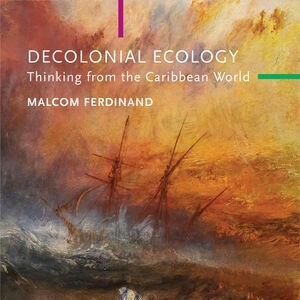Writing in the Toxic Ruins of Colonial Slavery: Politics and Science of the Chlordecone Contamination of Martinique and Guadeloupe.
Based on a five-year-long research project (2011-2016) and additional fieldwork in 2018-2019, this talk offers an interdisciplinary study of the use of an organochlorine compound called "chlordecone" (also known as Kepone), the subsequent contamination of the French Caribbean islands of Martinique and Guadeloupe, and the scientific and political responses of the authorities and civil societies. Joining a historical study, a sociological inquiry, and a political philosophy analysis of this toxic contamination, Malcom Ferdinand argues that the chlordecone (CLD) case exacerbates contemporary social and political disputes related to the colonial and slavery foundations of these two former French colonies. In return, it shows the ongoing struggle of local inhabitants to defend their bodies, the land they inhabit, and their future.
Malcom Ferdinand is an environmental engineer from University College London and doctor in political philosophy from Université Paris Diderot. He is now a researcher at the CNRS (IRISSO/University Paris Dauphine). At the crossroad of political philosophy, postcolonial theory and political ecology, his research focuses on the Black Atlantic and particularly the Caribbean. He explores the relations between current ecological crises and the colonial history of modernity. His book A Decolonial Ecology: Thinking from the Caribbean World was published by Polity Press in the Spring of 2022.
This conference will be live-streamed on Facebook and you can watch the recording on youtube afterwards.
